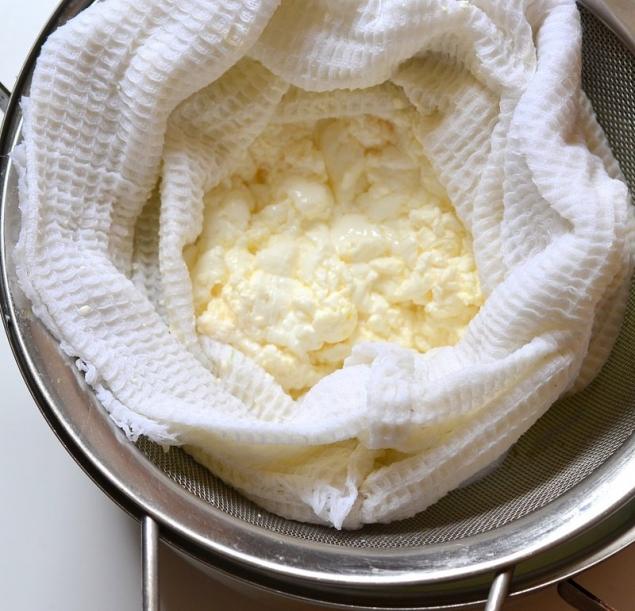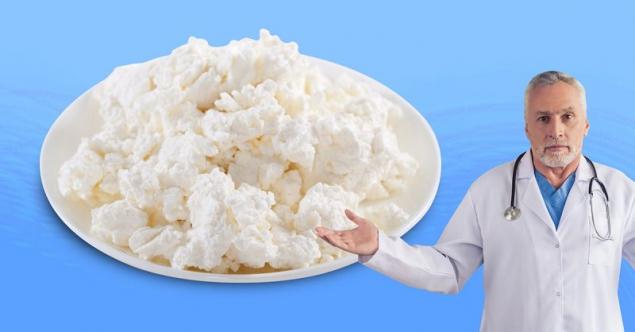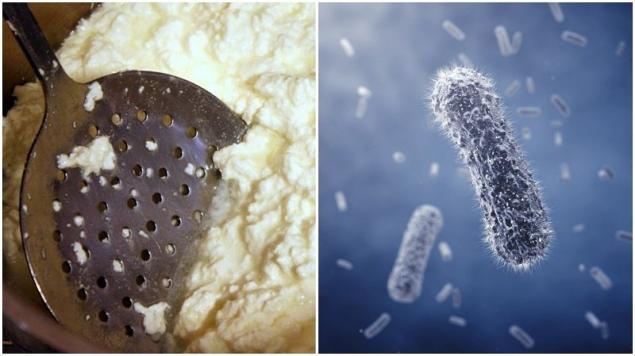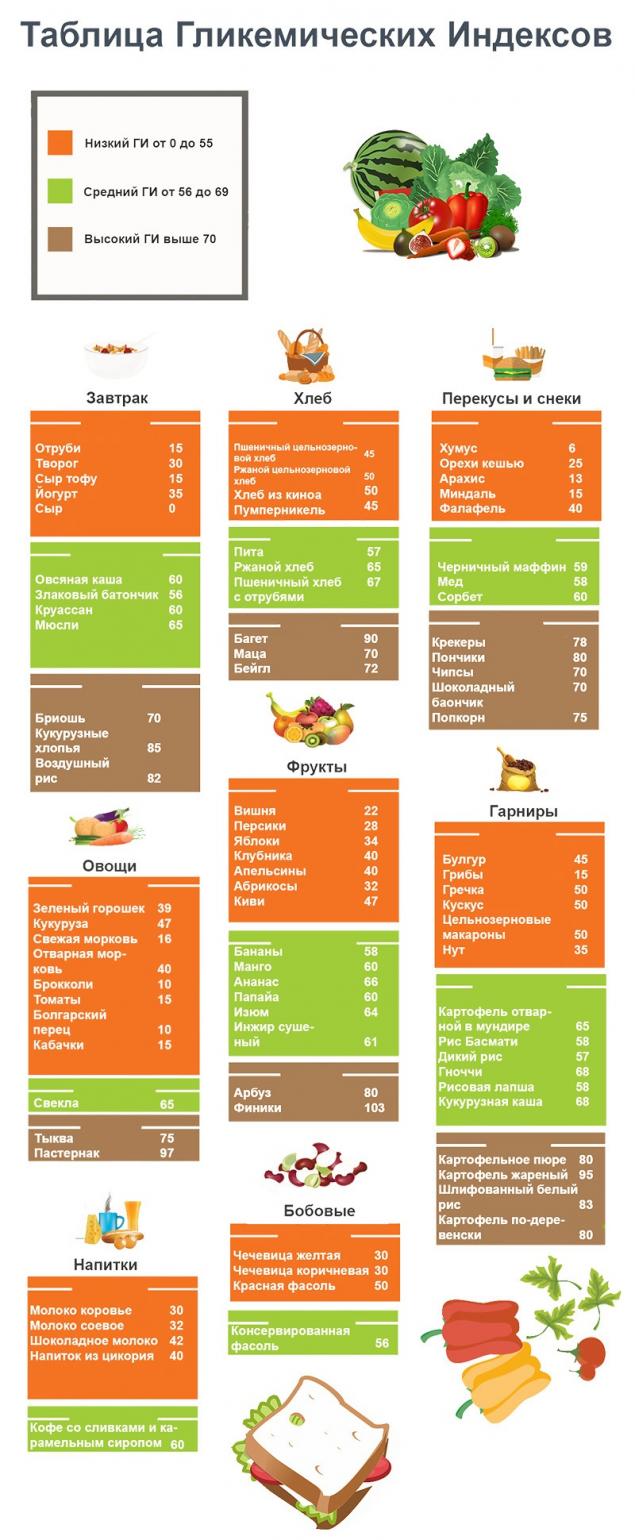285
The benefits of cottage cheese for the body
Cheese is a dairy product obtained by fermenting milk with subsequent removal of whey. In Russia, cottage cheese has long been loved and eaten almost every day. True, then it was still called cheese, well, and all products made of it - cheese (hence the name of cheesecakes).

Everyone has heard about the benefits of cottage cheese, but not everyone can formulate, and what exactly is the benefit of this product. Can it harm the body and is it worth eating every day?

What happens if you eat it for the night? Why? cottage cheese insulin index Is this the No. 1 topic for athletes and milk lovers? Let's work it out together!
The benefits of cottage cheese "Calcium storehouse" - this is how they usually speak of homemade cottage cheese. However, this is not the only useful feature of this product. The benefits of cottage cheese for the body consists of many indicators: amino acids, vitamins A, B, E, P, magnesium, iron, calcium, lack of lactose, and most importantly, easily digestible protein of animal origin!

It is believed that cottage cheese is a slow protein, due to the casein in its composition. In practice, the proportion of casein protein in cottage cheese is about 50%, the rest of the protein is fast. Thus, cottage cheese is a complex protein (both slow and fast).
Approximately 10-20% of the protein in cottage cheese is in a semi-digested state, which makes cottage cheese one of the easiest to digest proteins of animal origin.

Of course, someone may object: they say, protein can be obtained from meat and legumes. However, in the first case, normal absorption occurs only with the addition of greens and vegetables to food.
In the second case, digestion is accompanied by not too pleasant sensations from fermentation in the stomach, the formation of gases, intestinal bloating. So it turns out that the best source of protein is cottage cheese, easily digestible and balanced.
Harm cottage cheese is a safe and very useful product. It is not necessary to talk about its harm, but there are several points with which problems can arise.

Proponents of a healthy lifestyle often face such a concept as the glycemic index (GI) of products. In simple words, it is an indicator of the effect of food on blood sugar levels.
The higher the GI products, the faster the blood sugar level will rise and the faster the pancreas will react with the release of insulin. High GI have mainly simple carbohydrates: confectionery and bakery products, sweet fruits, dried fruits, cakes.

The cottage cheese has a very low glycemic index (GI), about 30 units. This value is comparable only with vegetables and some unsweetened fruits. Previously, nutritionists advised to eat it before bedtime to ensure muscle gain and satisfy evening hunger.
But in recent years, with the development of fitness, and most importantly, the increase in the number of sports fans who want to look good, around dairy products flared up heated debate.
Oil added to the fire research Professor of the University of Sydney Jennet Brand-Miller. Studying the causes of changes in insulin production, she found that its production is enhanced not only by carbohydrates. Fish and meat are considered low-carb, but insulin levels increase after eating them.
The concept of the insulin index (AI) was derived - a value that shows the insulin response of the body to a certain food product. It turned out that not all foods have the same glycemic and insulin index. Quite often, the glycemic index of foods and their insulin index do not coincide.
For example, GI apples — 30, and their AI — 59, GI white rice — 65, and AI — 79, GI cottage cheese — 30, and its AI — 120! Hard to believe, but cottage cheese with a carbohydrate content of 1.2 g per 100 g of production, with a low glycemic index, without increasing blood sugar levels, still stimulates a powerful release of insulin.
High AI cottage cheese served as a reason not to recommend it for evening consumption to those wishing to lose weight and athletes. The reason is that the release of insulin provoked by cottage cheese blocks the work of the main fat burning enzyme - lipase, which is responsible for the release and destruction of fats.
According to the fitness guru, a portion of cottage cheese for dinner deprives the body of the ability to burn existing fat deposits during sleep and, moreover, contributes to the formation of new ones. That's just a bad luck: insulin is released, but there are almost no carbohydrates in cottage cheese! Unless, of course, you eat white bread and sprinkle it with sugar.
In short, it is hardly possible to get better because of cottage cheese, but the process of losing weight it can slow down. Knowing about the insulin index of cottage cheese, now you will be able to analyze and decide whether to abandon its use at night.
If you are not a bodybuilder, not a diabetic and not sitting on a rigid diet, then I think there is nothing to worry about.
How to check the quality of the cottage cheese? Shelf life is an important indicator of product quality. The smaller it is, the more natural the cottage cheese is. Ideally, the shelf life should be no more than 72 hours, but it is more profitable for manufacturers to sell a product with a longer shelf life. Unfortunately, such cottage cheese does not add to the body.

On the shelves of stores today you can find not only cottage cheese, but also the so-called cottage cheese product. At first glance, the differences are minimal, but upon detailed examination it turns out that the cottage cheese product has many additives, not all of which have a beneficial effect on health.
In an effort to reduce the cost of products, unscrupulous manufacturers add starch and vegetable fats to cottage cheese. These simple tests will help you at home to determine the presence of foreign impurities in the cottage cheese. A couple of drops of iodine will determine whether the product has starch.

To determine the presence of vegetable fats, the product must first be tried. This is not the most reliable way, but if vegetable fats are added to cottage cheese, then an unpleasant oily taste and a feeling of a greasy film will remain on the tongue.
Also, you can conclude about the naturalness of the product by dipping it in a blender: natural cottage cheese will become plastic and slightly thick, and the mass with vegetable fats will be liquid. The effectiveness of these methods is not 100%. But there is a method that gives more objective results.
Of course, cottage cheese is a useful and necessary product for the body. But in order for all its positive qualities to be fully manifested, it is necessary to think carefully about its choice, storage and use. Nothing will prevent you from enjoying your favorite product.
The cottage cheese is tasty in itself, but it is even more tasty in the composition of various dishes, the most interesting recipes of which have repeatedly published "Site". Learn how to prepare unique cottage cheese bars and sweet dumplings with cottage cheese, which will surely appeal to your whole family!

Everyone has heard about the benefits of cottage cheese, but not everyone can formulate, and what exactly is the benefit of this product. Can it harm the body and is it worth eating every day?

What happens if you eat it for the night? Why? cottage cheese insulin index Is this the No. 1 topic for athletes and milk lovers? Let's work it out together!
The benefits of cottage cheese "Calcium storehouse" - this is how they usually speak of homemade cottage cheese. However, this is not the only useful feature of this product. The benefits of cottage cheese for the body consists of many indicators: amino acids, vitamins A, B, E, P, magnesium, iron, calcium, lack of lactose, and most importantly, easily digestible protein of animal origin!

It is believed that cottage cheese is a slow protein, due to the casein in its composition. In practice, the proportion of casein protein in cottage cheese is about 50%, the rest of the protein is fast. Thus, cottage cheese is a complex protein (both slow and fast).
Approximately 10-20% of the protein in cottage cheese is in a semi-digested state, which makes cottage cheese one of the easiest to digest proteins of animal origin.

Of course, someone may object: they say, protein can be obtained from meat and legumes. However, in the first case, normal absorption occurs only with the addition of greens and vegetables to food.
In the second case, digestion is accompanied by not too pleasant sensations from fermentation in the stomach, the formation of gases, intestinal bloating. So it turns out that the best source of protein is cottage cheese, easily digestible and balanced.
- Increases muscle mass
No wonder this product is so popular among athletes, because it is rich in protein and it has very few calories. In addition, the product is quickly absorbed and provides the body with the necessary protein.
- It improves mood.
Modern people suffer from vitamin D deficiency, which negatively affects their overall well-being and mood. In cottage cheese, this vitamin is in sufficient quantities. - Boosts male power.
Surprisingly, but it really contributes to the production of natural testosterone, as it has zinc and selenium, as well as B vitamins. In the complex, they have a beneficial effect on the hormonal system of men. - Prevents prostate cancer
More and more men suffer from this disease, and to prevent it, you need to lead a healthy lifestyle. Some products reduce the risk of prostate cancer, including cottage cheese. It is rich in selenium, which protects cells and DNA from damage. - Strengthens bones and joints
With age, they become weaker and need essential vitamins and minerals. The product is rich in phosphorus and calcium, which are actively involved in the formation of bones.
DepositPhotos - Improves exchange processes
This dairy product due to its special composition is able to accelerate metabolism, and it also improves the immune system. As studies have shown, cottage cheese reduces the impact of stress on the body, eliminates insomnia and anxiety. - Giving power
Feeling exhausted? Only 200 grams of cottage cheese will give you energy, and you can finish all the necessary tasks at work or practice.
Harm cottage cheese is a safe and very useful product. It is not necessary to talk about its harm, but there are several points with which problems can arise.
- A cottage cheese allergy
The cottage cheese does not contain lactose, so it is suitable even for people with a milk allergy. However, individual intolerance to the product is possible. - Kidney load
It is not recommended to abuse cottage cheese in kidney diseases. This is due to the fact that it contains too much protein, which significantly loads the excretion systems of the body. - Overuse
An adult person is enough 100-200 g of cottage cheese per day three times a week. Excessive use can sometimes adversely affect the liver and blood vessels. - Risk of poisoning
You can not use spoiled cottage cheese (the shelf life of home cottage cheese is 36 hours, and the shelf life of cottage cheese bought in a store is up to 5 days), as this can cause intestinal infections.

Proponents of a healthy lifestyle often face such a concept as the glycemic index (GI) of products. In simple words, it is an indicator of the effect of food on blood sugar levels.
The higher the GI products, the faster the blood sugar level will rise and the faster the pancreas will react with the release of insulin. High GI have mainly simple carbohydrates: confectionery and bakery products, sweet fruits, dried fruits, cakes.

The cottage cheese has a very low glycemic index (GI), about 30 units. This value is comparable only with vegetables and some unsweetened fruits. Previously, nutritionists advised to eat it before bedtime to ensure muscle gain and satisfy evening hunger.
But in recent years, with the development of fitness, and most importantly, the increase in the number of sports fans who want to look good, around dairy products flared up heated debate.
Oil added to the fire research Professor of the University of Sydney Jennet Brand-Miller. Studying the causes of changes in insulin production, she found that its production is enhanced not only by carbohydrates. Fish and meat are considered low-carb, but insulin levels increase after eating them.
The concept of the insulin index (AI) was derived - a value that shows the insulin response of the body to a certain food product. It turned out that not all foods have the same glycemic and insulin index. Quite often, the glycemic index of foods and their insulin index do not coincide.
For example, GI apples — 30, and their AI — 59, GI white rice — 65, and AI — 79, GI cottage cheese — 30, and its AI — 120! Hard to believe, but cottage cheese with a carbohydrate content of 1.2 g per 100 g of production, with a low glycemic index, without increasing blood sugar levels, still stimulates a powerful release of insulin.
High AI cottage cheese served as a reason not to recommend it for evening consumption to those wishing to lose weight and athletes. The reason is that the release of insulin provoked by cottage cheese blocks the work of the main fat burning enzyme - lipase, which is responsible for the release and destruction of fats.
According to the fitness guru, a portion of cottage cheese for dinner deprives the body of the ability to burn existing fat deposits during sleep and, moreover, contributes to the formation of new ones. That's just a bad luck: insulin is released, but there are almost no carbohydrates in cottage cheese! Unless, of course, you eat white bread and sprinkle it with sugar.
In short, it is hardly possible to get better because of cottage cheese, but the process of losing weight it can slow down. Knowing about the insulin index of cottage cheese, now you will be able to analyze and decide whether to abandon its use at night.
If you are not a bodybuilder, not a diabetic and not sitting on a rigid diet, then I think there is nothing to worry about.
How to check the quality of the cottage cheese? Shelf life is an important indicator of product quality. The smaller it is, the more natural the cottage cheese is. Ideally, the shelf life should be no more than 72 hours, but it is more profitable for manufacturers to sell a product with a longer shelf life. Unfortunately, such cottage cheese does not add to the body.

On the shelves of stores today you can find not only cottage cheese, but also the so-called cottage cheese product. At first glance, the differences are minimal, but upon detailed examination it turns out that the cottage cheese product has many additives, not all of which have a beneficial effect on health.
In an effort to reduce the cost of products, unscrupulous manufacturers add starch and vegetable fats to cottage cheese. These simple tests will help you at home to determine the presence of foreign impurities in the cottage cheese. A couple of drops of iodine will determine whether the product has starch.

- Put some food on the plate.
- Drop the iodine.
- Watch the reaction. If the cottage cheese is blue, it has starch in it. If left light yellow - the product is natural.
To determine the presence of vegetable fats, the product must first be tried. This is not the most reliable way, but if vegetable fats are added to cottage cheese, then an unpleasant oily taste and a feeling of a greasy film will remain on the tongue.
Also, you can conclude about the naturalness of the product by dipping it in a blender: natural cottage cheese will become plastic and slightly thick, and the mass with vegetable fats will be liquid. The effectiveness of these methods is not 100%. But there is a method that gives more objective results.
- Pour warm boiled water into the glass.
- Add 1 teaspoon of cottage cheese.
- Stir and leave for 2-3 minutes.
- If fatty spots appeared on the surface of the cup, then vegetable fats are present in the product.
Of course, cottage cheese is a useful and necessary product for the body. But in order for all its positive qualities to be fully manifested, it is necessary to think carefully about its choice, storage and use. Nothing will prevent you from enjoying your favorite product.
The cottage cheese is tasty in itself, but it is even more tasty in the composition of various dishes, the most interesting recipes of which have repeatedly published "Site". Learn how to prepare unique cottage cheese bars and sweet dumplings with cottage cheese, which will surely appeal to your whole family!

























